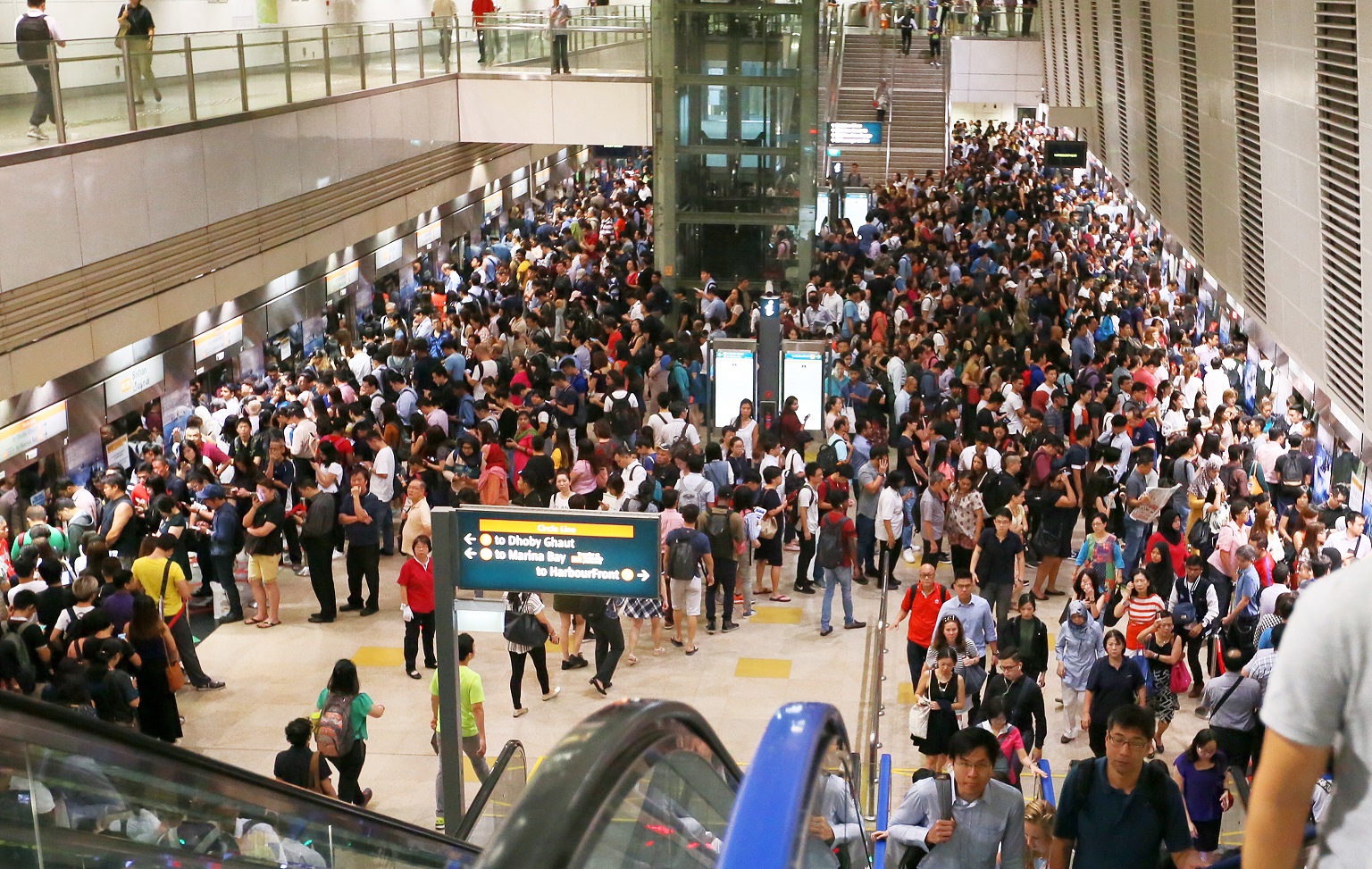Major MRT faults remain at record high but overall distance-based reliability improves
Sign up now: Get ST's newsletters delivered to your inbox

Crowds build up at Bishan MRT station due to signal fault delays on the morning of Nov 15, 2017.
PHOTO: ST FILE
Follow topic:
SINGAPORE - The number of major MRT delays remained high last year (2017), even as the distance clocked by trains before faults occurred improved considerably.
There were 16 delays which were longer than half an hour each last year - four of which were related to a signalling upgrade - according to newly released data from the Land Transport Authority.
The number equalled 2016's record number of major delays, with the North-South, East-West lines accounting for the majority. There were six and five major disruptions on the North-South and East-West lines, respectively.
There were 11 major delays on the LRT network - six on SMRT's Bukit Panjang LRT and five on SBS Transit's Sengkang-Punggol LRT. In 2016, there were 18 such delays.
In comparison, Hong Kong's MTR had a total of 10 major delays on both its heavy and light-rail systems last year.
The North East and Downtown lines - operated by ComfortDelGro-owned SBS Transit - remained the best-performing MRT lines. There were three major faults on the North East Line (NEL), and zero on the Downtown Line (DTL).
The NEL clocked 663,000km between delays, while the DTL clocked 650,000km. This was twice the average 390,000km posted by the entire MRT network, and nearly five times the average if resignalling flaws were included.
SMRT's Circle line, which had two major delays during the year, clocked 523,000km between faults, while the North-South and East-West lines clocked 336,000km and 278,000km, respectively.
Addressing Parliament on Wednesday, during his Ministry's budget debate, Transport Minister Khaw Boon Wan pointed out that his target was for the MRT network to clock 400,000km between delays this year, 600,000km by next year (19), and one million kilometres by 2020.
"After a painful 2017, the new signalling system in the North-south line has finally stabilised," Mr Khaw said. "In fact, the North-south line hopes to cross its 150th consecutive
day of no disruption - that is, a service delay of more than 30 minutes- today (March 7)."
The LRT network meanwhile, improved over 2016's performance. On the whole, the network clocked 77,000km between delays, up from 49,000km in 2016.
Singapore Institute of Technology Assistant Professor Andrew Ng said: "The improvement of rail reliability - if excluding faults arising from resignalling - may be attributed to the completion of sleeper and power rail replacements on the North-South, East-West lines; deepening of rail engineering capabilities; expansion of rail industry workforce; and implementation of condition monitoring technologies."

